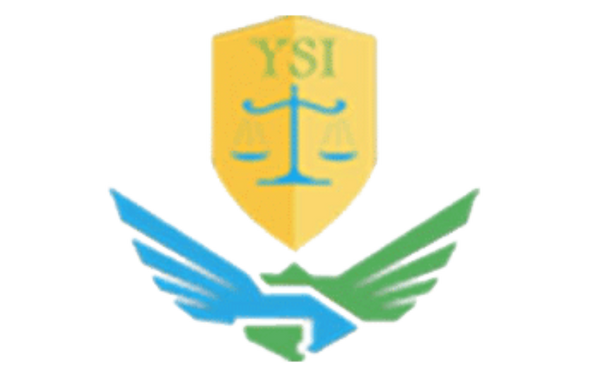
Certification for ball products such as basketballs and volleyballs, as well as inspection and factory inspection services.
From campus sports to professional competitions, ball sports such as basketball, football, and volleyball have always been widely popular. To ensure the safety and quality reliability of these sports equipment, strict inspection certification and factory inspection standards are indispensable. This article will systematically introduce the applicable scope of certification for ball products, the certification model, the inspection process, and the key points of factory inspection, providing a complete implementation guide for certification and inspection for enterprises.
I. Scope of Application
This certification rule is applicable to the inspection certification and factory inspection review of common ball products such as basketballs, footballs, volleyball, and handballs. It covers all the quality inspection requirements from production to factory shipment.
II. Certification Mode
Certification for ball products can be carried out in the following two modes:
Type testing + Initial factory inspection + Post-certification supervision
This is applicable to mass production scenarios that require continuous quality supervision and factory inspection reviews.
Batch inspection
This is applicable for the inspection and certification of a single batch of products, but does not include the review of the factory's quality system.
III. Certification Implementation Process
3.1 Type Test + Initial Factory Inspection + Post-Acceptance Supervision Model
3.1.1 Certification Application
Unit Division Principles
Every product with the same structure and materials is regarded as a certification unit.
Products made of different materials or with different structures should be classified into separate certification units.
Products from different production sites are regarded as different application units.
Application requirements
The applicant is required to submit the following materials as the basic documents for factory inspection and product certification:
Certificate of Legal Business Operations of the Enterprise
Enterprise Overview and Product Production History
Quality Management System Documents and Operation Status Description
The adopted product standards (if they are enterprise standards, a compilation explanation must be provided)
Production process diagram, with key processes marked
List of main production and testing equipment
Product name, model, picture and user manual
Key purchased components and raw material information
Other supplementary materials required by NSCC
3.1.2 Type Test
Sample Requirements
The samples must be products that have been produced in normal quantities and have passed the factory inspection.
Samples can be submitted or collected on-site.
The applicant is responsible for the authenticity of the samples.
Testing standards
The inspection of ball products shall be carried out in accordance with the following national standards:
GB/T 22868-2008 "Basketball"
GB/T 22882-2008 "Volleyball"
GB/T 22892-2008 "Football"
GB/T 14625 series "Test Methods for Basketball, Football, Volleyball and Handball" (covering roundness, rebound height, impact resistance, circumference measurement, etc.)
GB/T 19851 series "Sports Equipment and Facilities for Primary and Secondary Schools" relevant sections
Inspection method
Select the corresponding standards based on the product structure and application. Conduct type tests in the laboratory or on-site. All items must be qualified for the inspection certification to be considered successful.
3.1.3 Initial Factory Audit
Audit Contents
Factory quality assurance capability review: Conduct a comprehensive factory inspection assessment based on the "Product Certification Factory Quality Assurance Capability Requirements" to evaluate the production system.
Product consistency check: Verify that the product's identification, structure, key processes, and raw materials are consistent with the declared information.
Review scope
Includes all production sites and related quality activities, ensuring that the inspection system fully covers the entire product process.
3.1.4 Certification Evaluation and Approval
After receiving the type test report and the factory inspection results, the certification body shall complete the assessment within the prescribed time limit:
Type test: Approximately 30 working days
Factory inspection report submission: 5 working days
Certification decision and certificate production: no more than 15 working days
3.1.5 Post-certification Supervision
To ensure continuous compliance with the verification certification requirements, the certification body will conduct regular inspections:
Supervisory inspection: Conducted at least once a year, with a focus on reviewing the key aspects of the quality system.
Sampling inspection: Taking samples from the factory or market for re-inspection.
Supervision result handling: For non-compliant items, corrective actions must be taken. Severe issues may result in the suspension or revocation of the certificate.
3.2 Batch Inspection Certification Model Applicable scenarios
This is applicable for the inspection and certification of single-batch ball products, and does not involve the review of the factory's quality system.
Application materials
Business License
Product execution standards or technical requirements stipulated in the contract
Product name, model, picture and batch number information
Factory name and address
Testing method
Sampling plan: According to GB/T 2828.1-2003, sampling is conducted in accordance with AQL 2.5.
Inspection determination: Conduct on-site inspections in accordance with standards or contract requirements to determine whether this batch has passed the inspection certification.
IV. Certification Qualification Management
4.1 Certification Maintenance and Changes
The certificate holder is required to ensure the continuous effectiveness of the quality system. Any changes in processes, sites, or key suppliers must be reported to the certification body in advance and re-inspection and evaluation must be conducted.
4.2 Certification Suspension and Cancellation
When serious quality issues arise, the certification authority has the right to suspend or revoke the certificate. After the enterprise completes the rectification, it can apply to restore its certification status.
V. Certification Certificates and Marks
The batch inspection certification is only valid for the batch being applied for.
The type test mode certificate remains valid during its validity period as long as it complies with the supervision requirements.
The use of the certification mark must strictly follow the "General Implementation Rules for Product Certification"
Share this product

Certification for ball products such as basketballs and volleyballs, a
From campus sports to professional competitions, ball games such as basketball, football and volleyball have always been widely popular.
